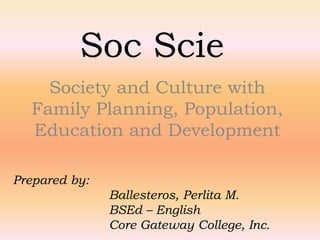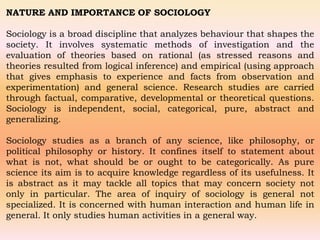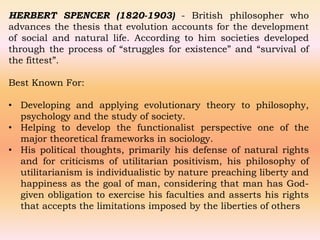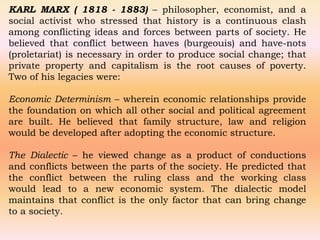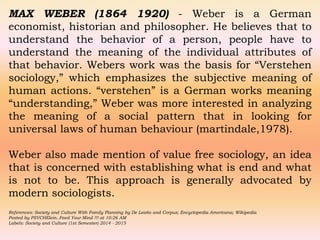Sociology emerged in the 19th century in response to modernity and increasing social changes. While it has roots in early philosophers like Plato and Aristotle, sociology aims to systematically study social life, behavior, and institutions. Some key founders of sociology include Auguste Comte, who coined the term sociology and emphasized the scientific study of society, Herbert Spencer who applied evolutionary theory to sociology, Karl Marx who emphasized class conflict and economic determinism, and Emile Durkheim who studied how social forces influence behavior and social order. Sociology analyzes both small-scale social interactions and large-scale social systems and structures to understand human behavior and social change.
